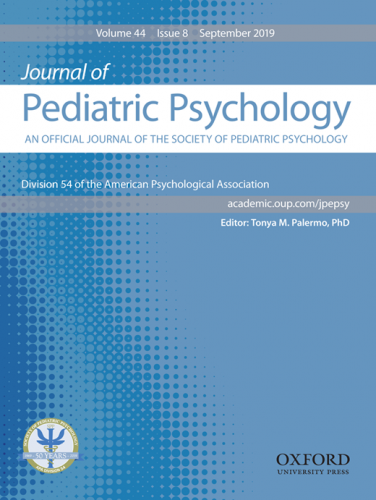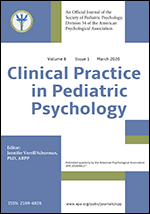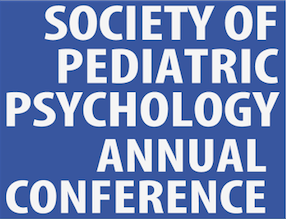Fact Sheet: Encopresis in Children and Adolescents
Encopresis is the voluntary or involuntary passage of stool in places other than toilets. To receive a diagnosis of encopresis, the child must pass feces into inappropriate places (such as clothing or on the floor) at least once per month for three months or more. Passage of stool into inappropriate places is also known as soiling or fecal incontinence. The child must be at least 4 years old (or the developmental equivalent). The behavior must not be due exclusively to the direct physiological effect of a substance (e.g., laxatives or stool softeners) with the exception of constipation. There are two specifiers for encopresis: with constipation and overflow incontinence and without constipation and overflow incontinence (also sometimes referred to as nonretentive fecal incontinence). Assessment and treatment of encopresis is based on a biobehavioral model.
Prevalence and Course
Encopresis has been estimated to occur in approximately 4 percent of 4-year-olds and 1.6 percent of 10-year-old children, affecting boys three to six times more often than girls. As many as 95 percent of children referred for the treatment of encopresis present with functional constipation or constipation without identifiable cause (e.g., medical conditions or side effects of medication). Experiences such as painful defecation, psychosocial stressors (e.g., entering school or the birth of a sibling), and challenges during toilet training may predispose some children to functional constipation. Encopresis and enuresis (urinating in inappropriate locations) commonly co-occur.
Two types of trajectories have been described for children with encopresis: primary and secondary. In primary encopresis, the child has never been successfully toilet trained whereas, a child with secondary encopresis had a period of six months or more in which they were continent of stool.
Health and Psychosocial Consequences
The most serious and common health-based consequence of encopresis is urinary tract infections from the contamination of the urinary tract with feces from the child’s underwear. Urinary tract infections are more likely to occur in females. Social consequences of encopresis include teasing and ridicule from peers, embarrassment, low self-esteem, and anger/punishment from caregivers.
Evidence-based Assessment
Assessment of encopresis should include a thorough medical and psychosocial evaluation. Medical evaluation of encopresis includes a history and physical, review of symptoms and stooling history, physical examination, and possibly blood work if symptoms suggesting medical causes of constipation are present. Although commonly completed, abdominal radiographs are not recommended by the North American Society for Pediatric Gastroenterology, Hepatology and Nutrition (NASPGHAN) for the assessment of constipation and fecal incontinence. Medical providers, such as a pediatric gastroenterologist, will evaluate whether constipation is present, how best to treat constipation if present, and rule out other causes for constipation including Hirschsprung Disease. Psychosocial assessment including behavioral screening using parent and teacher rating scales (e.g., BASC, CBCL, Connors CBRS), is recommended to identify comorbidities such as Oppositional Defiant Disorder, Anxiety and Attention-Deficit/Hyperactivity Disorder which may impact implementation of treatment recommendations. Formal cognitive evaluation is not required for the standard treatment of encopresis; however, consideration of developmental level may facilitate appropriate treatment planning in youth with developmental delays. Psychologists should work to identify and address barriers to implementation of toileting recommendations including conflictual parent-child relationship, noncompliance with toilet sits or clean up following a soil, medication nonadherence, skills deficits, and fear of defecation.
Culture, Diversity, Demographic and Developmental Factors
Studies have not found associations between encopresis and socioeconomic status, family size, child’s position in the family or parental age. Unfortunately, population-based studies on the prevalence of encopresis in children are scarce, especially beyond American populations. There is no evidence to suggest that encopresis in isolation is an indicator of sexual abuse.
Evidence-based Interventions
The treatment approach with the best outcome data is usually referred to as Medical-Behavioral. Typically, this consists of the use of medication to address the child’s constipation (either oral medications and/or rectal) and implementation of behavioral modification strategies to promote and maintain appropriate defecation. Bowel management proceeds in two phases: initial cleanout and establishment of a maintenance program to promote regular/healthy bowel functioning and prevent the reoccurrence of constipation. During behavioral treatment, a regular toilet sit schedule is established and children are rewarded for appropriate defecation behaviors (e.g., sitting on the toilet, stooling in the toilet, cleaning up if soiled). It may be necessary to shape successive approximations of appropriate toileting behaviors. For example, a child would be asked to sit on the toilet for 1 minute 3 times per day and provided with a reward for complying. When they have mastered this step, they could move on to 2 minute, 3 minute, and on 5 minute sits so long as they mastered the previous step. One empirically supported treatment of encopresis is Enhanced Toilet Training (ETT; Borowitz, Cox, Sutphen, & Kovatchev, 2002), which has been delivered in both in person and online formats. Following attainment of fecal continence, the recommendation to maintain laxative therapy and behavioral recommendations for a duration of time (3-12 months) is made. Nonpharmacological interventions for constipation management may include increasing dietary fiber, increasing fluid intake, decreasing dairy consumption, increasing physical activity, and the use probiotics. Although there is limited research to support the efficacy of these interventions in the management of functional constipation (Tabbers et al., 2014), they are often deemed appropriate as they carry very low risk and may be helpful for some. There is emerging evidence for the efficacy of pelvic floor biofeedback in the management of constipation and encopresis. Regardless of the treatment approach, there seems to be general agreement that treatment that prevents or quickly addresses the reappearance of constipation is necessary. There is no empirical evidence to support the use of punishment in the treatment of encopresis. Punishment of soiling may lead to more behavioral challenges and further delay of bowel control.
Authors: Christina Low Kapalu, PhD & Edward Christophersen, PhD, ABPP
Date of Last Update: July, 2019
References
- Brazzelli, M., Griffiths, P. V., Cody, J. D., & Tappin, D. (2011). Behavioural and cognitive interventions with or without other treatments for the management of faecal incontinence in children. Cochrane Library, Cochrane Database of Systematic Reviews, 12. doi: 10.1002/14651858.CD002240.pub4
- Christophersen, E.R., & Friman, P.C. (2010). Elimination disorders in children and adolescents. Cambridge, MA: Hogrefe.
- Freeman, K. A., Riley, A., Duke, D. C., & Fu, R. (2014) Systematic review and meta-analysis of behavioral interventions for fecal incontinence with constipation. Journal of Pediatric Psychology, 39(8), 887–902.
- Mellon, M. W., Whiteside, S. P., & Friedrich, W. N. (2006). The relevance of fecal soiling as an indicator of child sexual abuse: a preliminary analysis. Journal of Developmental & Behavioral Pediatrics, 27(1), 25-32.
- Ritterband, L. M., Thorndike, F. P., Lord, H. R., Borowitz, S. M., Walker, L. S., Ingersoll, K. S., … Cox, D. J. (2013). An RCT of an internet intervention for pediatric encopresis with one-year follow-up. Clinical Practice in Pediatric Psychology, 1(1), 68–80.
- Tabbers, M. M., DiLorenzo, C., Berger, M. Y., Faure, C., Langendam, M. W., Nurko, S., … Benninga, M. A. (2014). Evaluation and treatment of functional constipation in infants and children: Evidence-based recommendations from ESPGHAN and NASPGHAN. Journal of Pediatric Gastroenterology and Nutrition, 58(2), 258–274.
- Von Gontard, A. & Equit, M. (2015). Comorbidity of ADHD and incontinence in children. European Child & Adolescent Psychiatry, 24, 127-140.



